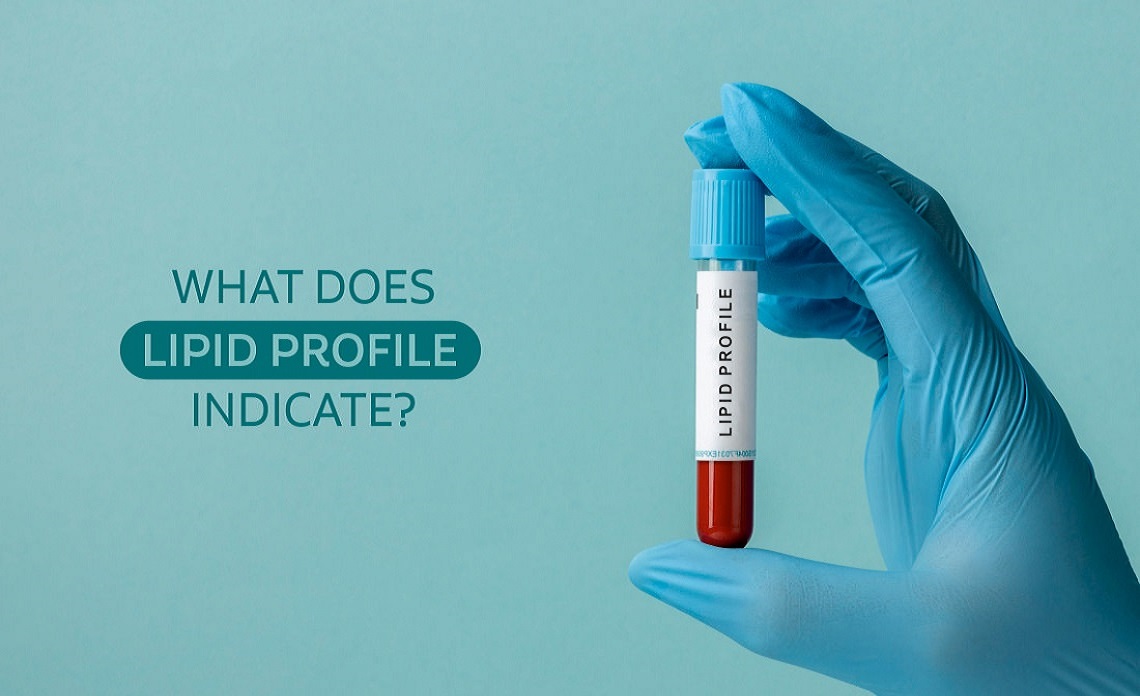|
|

What is a lipid profile?
A complete
cholesterol test also known as a lipid panel or lipid profile test is a blood
test which will help to know the quantity of cholesterol and triglycerides in
your blood.
A lipid profile
can help determine your risk of the buildup of fatty deposits (also called
lipids) in your arteries which can cause narrowed or blocked arteries
throughout your body (known as atherosclerosis).
The lipid
profile test helps evaluate cardiovascular health by analyzing cholesterol
within the blood. An excessive amount of cholesterol can build up within the
blood vessels and arteries, damaging them and heightening the danger of a developing heart condition, stroke, and heart attack.
What are triglycerides?
Now, you know
the lipid profile test is done to test the number of triglycerides in the
blood, but what are triglycerides?
Triglycerides
are actually lipid compounds made of glycerol consisting of three fatty acid
chains of varying length and composition. These fatty acid chains are often saturated
or unsaturated, and therefore the chemical composition of every chain is
different. Each chain is made of carbon and hydrogen atoms with different
single or double-bonded chains, as per the degree of saturation or
unsaturation. Triglycerides are formed of very mixed types of chains, making
the structural comparison very diverse in nature.
When should a lipid profile be checked?
The Lipid
Profile Test can be prescribed by your doctor for several reasons:-
Screening: This
is often routine testing to work out if your cholesterol is normal or falls
into a borderline-, intermediate-, or high-risk category.
Monitoring: If
you got irregular or abnormal results on previous tests or have other risk factors related to heart problems, lipid profile tests can help monitor the
cholesterol in your blood.
Measuring
response to treatment: If you've been advised to make lifestyle changes or
prescribed cholesterol medications, your doctor will advise regular lipid
profile tests to evaluate your response to the given treatment.
Diagnosis: Prescribing lipid profile tests can also be a part of the diagnosis of certain other medical conditions, for example, diseases that affect the liver. So, if your doctor notices symptoms that point to these diseases, they will prescribe a lipid profile test to diagnose the problem.
Which tests are included in the lipid profile?
The Lipid
Profile test result consists of
HDL Cholesterol - High-Density Lipoprotein (HDL) cholesterol also
known as the "good" cholesterol because it helps remove other sorts
of bad cholesterol from your bloodstream. Higher levels of HDL cholesterol are
related to a lower risk of heart problems.
LDL Cholesterol -
Low-Density Lipoprotein cholesterol also referred to as the "bad" cholesterol
can build up within the walls of your blood vessels and narrow the blood
passage. A clot can form and get stuck within the narrowed space, causing an
attack or stroke.
Total
Cholesterol - Total cholesterol, as the name suggests, is the
total amount of cholesterol in your blood. It includes LDL (LDL, or "bad")
cholesterol and HDL (HDL, or "good") cholesterol.
Triglycerides -
These types of fatty acid compounds, when in excess can lead to cardiovascular
disease and pancreatic inflammation.
VLDL
Cholesterol - Very-low-density lipoprotein cholesterol is made
within the liver and released into the blood vessels to provide triglycerides
to body tissues. VLDL cholesterol in high levels is linked to increases in the
number of lipid deposits on the walls of arteries, which narrows the passage
and restricts blood flow.
Chol / HDL
Ratio - When the number of your total cholesterol is
divided by the number of HDL cholesterol, the result is known as the
cholesterol ratio. Higher the ratio, the higher the chances of developing heart
disease.
What are normal cholesterol levels?
Cholesterol
levels are measured in milligrams per deciliter (mg/dL) unit.
These are the
healthy levels of cholesterol, based on age and gender:
For Age 19 or less:
Total Cholesterol |
Less than 170mg/dL |
Non-HDL |
Less than 120mg/dL |
LDL |
Less than 100mg/dL |
HDL |
More than 45mg/dL |
Men Aged 20 or more:
Total Cholesterol |
125 to 200mg/dL |
Non-HDL |
Less than 130mg/dL |
LDL |
Less than 100mg/dL |
HDL |
40mg/dL or higher |
Women aged 20 or more:
Total Cholesterol |
125 to 200mg/dL |
Non-HDL |
Less than 130mg/dL |
LDL |
Less than 100mg/dL |
HDL |
50mg/dL or higher |
Symptoms of high cholesterol?
There are not
usually any specific symptoms of high cholesterol which makes it all the more
important to get checked. It is a hidden risk factor that suggests it happens
without us knowing until it's too late.
Still, some
people experience symptoms (but only when it's time to rush to the doctor) like
People who smoke, have high blood pressure, are physically inactive, eat unhealthy food, are obese, have diabetes, or have a family history of premature coronary heart disease (before 55 for men and before 65 for women) are more at risk of high cholesterol levels.
Care required before and during the test
For laboratory lipid profile tests, you might have to
fast for around 9-12 hours before your blood is taken, which means not eating
anything and drinking nothing but water before the test.
In some cases,
lipid profile tests can be conducted without fasting, but you ought to ask your
doctor beforehand about the fast and always follow any pre-test instructions
you're given.
One can reduce the risk by following a healthy low-salt diet that emphasizes fruits, vegetables and whole grains, staying physically active by exercising on most days of the week for at least 30 minutes, limiting the number of animal fats and consuming good fats in moderation, drinking less alcohol or better none at all, quitting smoking and maintaining a healthy weight.
Unipath
specialty laboratory provides home sample collection for your convenience and a
range of preventive health checkups which include Lipid Profile Tests.
Recent Posts